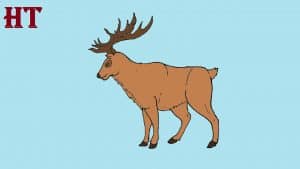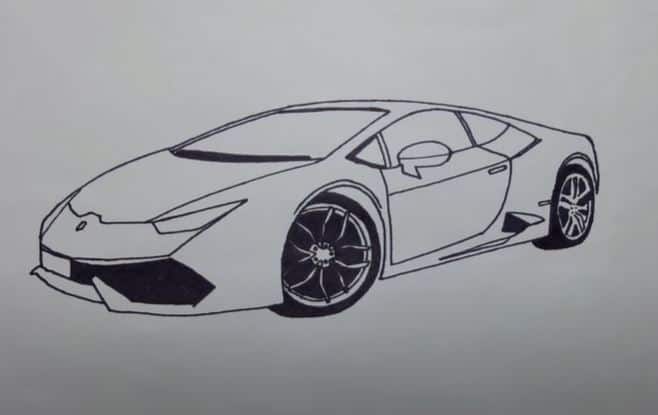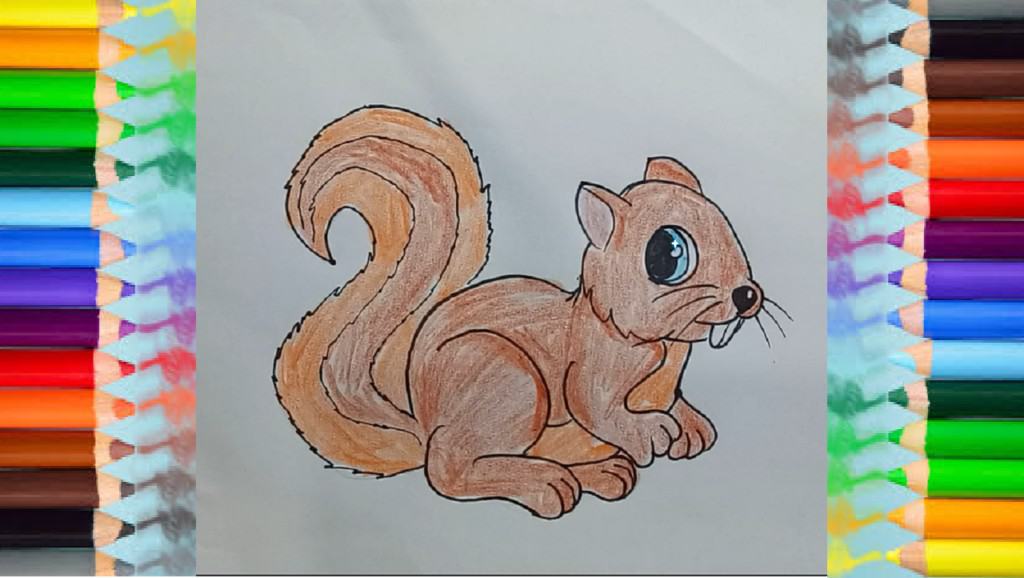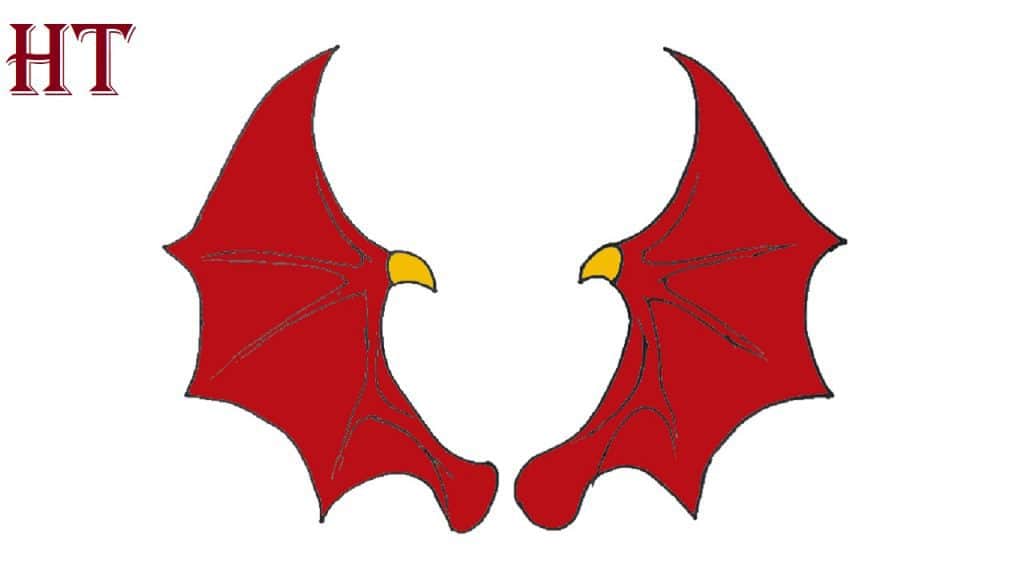How to draw an Elk easy with this how-to video and step-by-step drawing instructions. Easy animals to draw for beginners and kids.

Please see the drawing tutorial in the video below
You can refer to the simple step-by-step drawing guide below
Step 1
Start off by drawing a circle. This will help you to paint the moose’s head.
Step 2
Delete the bottom part of the circle. Use curves to draw a trapezoid-like shape, with rounded corners and open vertices, below the circle. Connect the open ends of the circle to this shape with curves. This forms the moose’s snout. Draw a circle at the top of the snout to show the nose. Draw a curve over the top of the nose and paint two water droplets to represent the nostrils. Finally, draw an inverted trapezoid with rounded corners below the muzzle to form the lower jaw.
Step 3
Delete parts of the top of the head. Draw a curve through each opening, forming the base of the gauze. Then, use two curves around the ears, meeting at a point at the end. Draw a curve over the top of the ear to create a hologram.
Step 4
Draw antlers of moose. Use a long, curved line to draw the lower part of the gauze. At the top, use multiple pairs of curves that meet at points pointing up.
Step 5
See the moose’s face in detail. Use the curves to outline the teardrop-shaped eyes. Draw several consecutive smaller circles in each eye. Contour the face by drawing curves above the eyes. Next, draw the neck. Elongate the curves below the head. Connect them to a series of curves that meet at jagged points. Draw a series of second lines out of the limit lines of the neck, showing the appearance of feathers.
Step 6
Start sculpting the elk’s body. Use overlapping curves to draw shoulders, back, hips, and tail. Then use the curves to draw the hind legs, noting the pointed ankle. Use curves to cover the legs or nails. Notice the “U”-shaped lines at the top indicating hooves, or splits.
Step 7
Use a curve to draw a belly. Below, widen the two curves to form the rest of the hind legs. Connect them at the end, then use additional curves to surround the teardrop nail.
Step 8
Use two long and curved lines to draw the foreleg. Circle the bottom of the leg using the “V” shaped circles to form the toes. Draw a curve over the tips of the toes to represent the toenails.
Step 9
Use a series of overlapping curves to draw the moose’s chest. Then use the curves to draw the remaining front leg, going over the back of the foreleg. Don’t forget to draw a curve on the foot to denote the hooves. In the end, draw a series of curves that meet at jagged points on the chest to give the fur texture.
Step 10
Color your cartoon moose. Lemurs are usually brown or gray, although they can sometimes be white.


